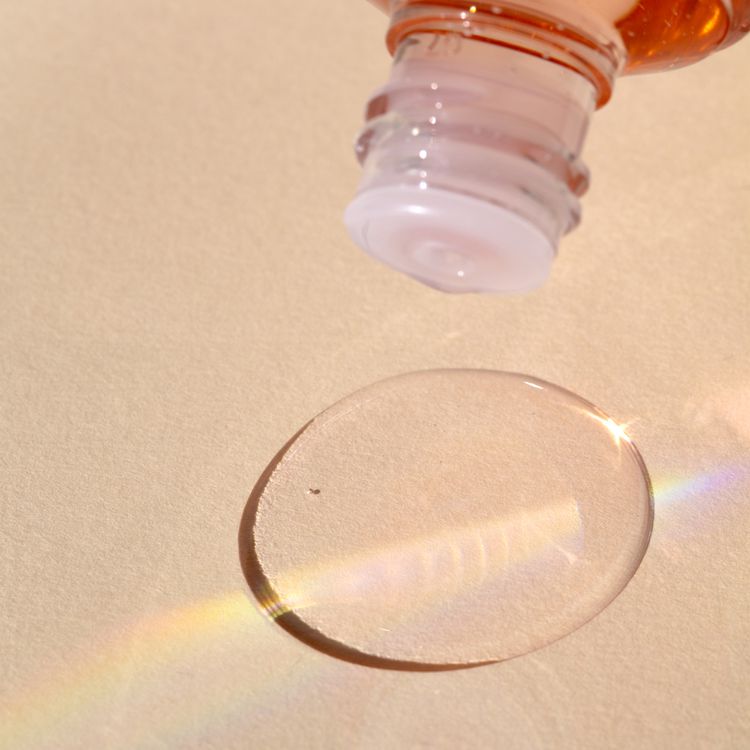Winkelwagen
U heeft geen artikelen in uw winkelwagen
It may seem counterproductive to put facial oil on oily skin. But sometimes, skin appears oily because it actually doesn’t have enough oil, and the sebaceous glands overcompensate by producing too much.
You can try Bio-Oil on oily skin, but it may be more effective to use jojoba oil, which is similar to human sebum.
A 2006 clinical trial conducted by the Bio-Oil company found the oil to be nonacnegenic and noncomedogenic, meaning it isn’t known to cause acne or clog pores. More independent research is needed.
Bio-Oil is generally considered safe, though there are certain risks and side effects associated with the product. Don’t use it if your skin or scars are cracked or bleeding. The oil contains fragrance, and it can be harmful if it gets into the body. It should also never be swallowed.
Linalool, a fragrance ingredient, is a known allergen in many people and is found in Bio-Oil.
If you’re allergic or sensitive to essential oils, don’t use Bio-Oil. It’s a good idea to do a skin patch test before using it for the first time. To do so, put a small amount of product on your forearm, and wait at least 30 minutes for signs of a reaction.
Apply a few small drops of Bio-Oil to clean, dry skin twice daily. Instead of rubbing it in as you would a moisturizer, you can gently pat or dab the oil into your skin to help it absorb. You can also use Bio-Oil after a moisturizer.
You can leave Bio-Oil on your face overnight. There’s little research to prove the efficacy of doing so, but anecdotally speaking, people claim to do this for added hydration.
Bio-Oil is available in many drugstores, grocery stores, and health and beauty stores.
Bio-Oil may be more effective at preventing acne than at treating it. Some potentially effective acne treatments include:
Dr. Hayag explains that Bio-Oil is made of various vitamins and essential plant oils, including lavender oil, sunflower oil, and rosemary leaf oil. It also contains sunflower oil, "which is a great ingredient for the skin," she says. "It acts as an emollient and makes skin feel soft and smooth, and it’s even been shown to enhance recovery from damage to the skin barrier." Dr. Rabach adds that Bio-Oil also contains PurCellin, which is lighter than other oils and non-greasy.
In fact, one of the oil ingredients is soybean oil, which is rich in several different fatty acids, according to Dr. Hayag. "The oils all work in conjunction to effectively moisturize the skin and reduce inflammation," she says. "It also has tocopheryl acetate, a form of vitamin E, which is a great antioxidant and protects the skin from aging and damage by free radicals, " adds Dr. Hayag.

Spare some time and youll end up learning benefits of jojoba oil for eczema.
It starts with a scratch and then the cycle repeats. Initially, I never regret for scratching but the inflammation of eczema flare-ups made my day worse. Ive zero knowledge about dermatology and cant give you medical assistance.
However, from my personal experience and few anecdotal reports I came to know that natural remedies can do wonders on your skin. Apart from treating various ailments, jojoba oil can enhance collagen production and make the skin firm.
However, you can reduce it with different home and over the counter remedies.
Note: If you dont care to change your diet and lifestyle, topical remedies cannot make an impact on the skin.
Jojoba oil is extracted from nuts of jojoba plant. This liquid wax resembles sebum, which keeps your skin moist. Because of this unique quality, it is prominent for hydrating dry itchy patches.
Being a carrier oil, jojoba oil can be mixed with any essential oil to improve your skin texture. For the best aroma mix lavender oil and jojoba oil together.